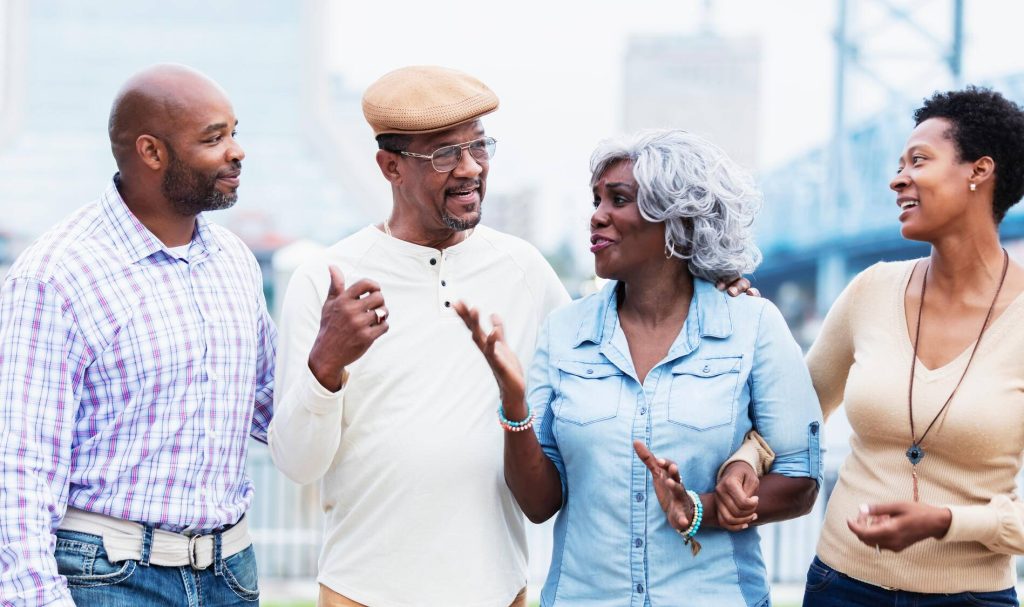-
COVID-19
Mayo Clinic Q&A podcast: Community leaders are key to reaching people underrepresented in research

To address health disparities and reach underserved communities, work is underway at Mayo Clinic to raise up community voices through community engagement.
"Community engagement is an ongoing process," explains Dr. Chyke Doubeni, director of Mayo Clinic’s Center for Health Equity and Community Engagement Research. "It's a partnership or collaboration among organizational entities and members of the community. And the sole purpose of this is to solve problems and address priorities that a community sees as being priorities for them."
The Center for Health Equity and Community Engagement Research focuses on disparity-related health promotion and disease prevention in areas including cancer, cardiovascular disease and metabolic illness. One initiative Mayo Clinic is taking part in is the National Institutes of Health's (NIH) Community Engagement Alliance Against COVID-19 Disparities (CEAL) research program. This research program focuses on working with communities hardest hit by the pandemic to provide trustworthy information and improve diversity and inclusion in COVID-19 research.
Eula Dean is a community leader who leads the Arizona CEAL consortium community engagement work group. She is also a member of Mayo Clinic in Arizona's Community Engagement in Research Advisory Board.
"I think that one of the things that helped was we identified individuals in the community who have respect and who already worked in the community," says Dean. "Whether they were located in our churches or they have positions of power in terms of their work, it opened some doors for us to really be able to reach our community."
By partnering with community leaders, the CEAL program was able to reach those who were otherwise reluctant to use the health care system, sometimes due to past experiences.
"We had to honor and listen to those concerns," explains Dean. "We had to explain that we want you to know what's happening with COVID-19, so we are bringing this information to you. And we allowed them to ask their questions. And I think it made a difference. We understand that we still have struggles, but I believe that the manner in which we started with a humble heart to say: 'This is what I've learned. Here's my expertise. I love my family. I want my family to be healthy.' I think those were the things that made a difference."
Dr. Doubeni agrees that building trust is key to the successful partnership between researchers and the community.
"What we want to do as researchers is to be able to build trust and be trustworthy so that people can believe in science and can believe in and trust the health care they need to get," says Dr. Doubeni. "So building that trust through community engagement in research can allow us to be stronger for when the next crisis may come along."
On the Mayo Clinic Q&A podcast, Dr. Doubeni and Dean discuss the work of the CEAL program and the importance of engaging underserved communities in research.
To learn more, read the Raising Up Community Voices in Research blog series, including Eula Dean's essay.
Watch: Dr. Doubeni and Ms. Dean discuss the CEAL program and community engagement in research.
_______________________________
For the safety of its patients, staff and visitors, Mayo Clinic has strict masking policies in place. Anyone shown without a mask was recorded prior to COVID-19 or recorded in an area not designated for patient care, where social distancing and other safety protocols were followed.
Information in this post was accurate at the time of its posting. Due to the fluid nature of the COVID-19 pandemic, scientific understanding, along with guidelines and recommendations, may have changed since the original publication date.
For more information and all your COVID-19 coverage, go to the Mayo Clinic News Network and mayoclinic.org.







